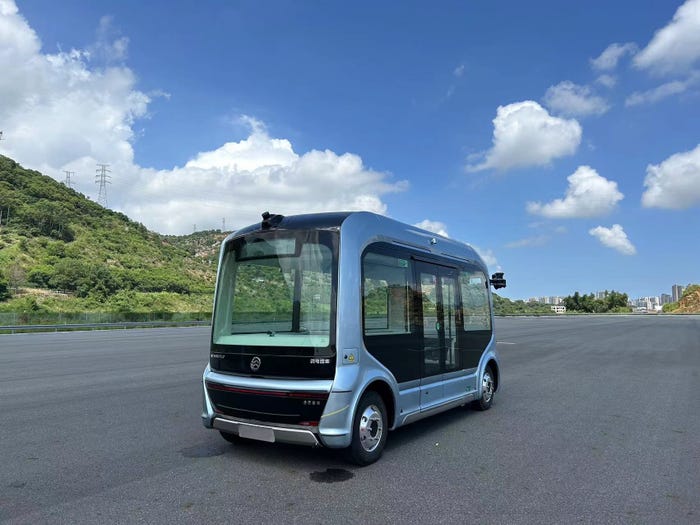Volkswagen Steps up Self-Driving Tests in GermanyVolkswagen Steps up Self-Driving Tests in Germany
The announcement comes days after confirming launch of Austin, Texas test program

Volkswagen is stepping up its testing of autonomous vehicles (AVs) in Europe.
Just days after it confirmed it was launching a North American test program in Austin, Texas, the automaker revealed details of how it was advancing its operations in Munich, southern Germany.
As in Austin, the vehicles being assessed are ID. Buzz ADs, with VW taking the opportunity to showcase them to what it describes as “decision-makers from politics, public authorities and business,” as well as representatives from local media.
By carrying these potentially influential passengers, the Munich program is going a step further than Texas, where initially VW safety operators will be the only people on board.
The tests in Munich are being carried out on public roads, with the ID. Buzz vehicles offering Level 4 automated functionality as defined by the Society of Automotive Engineers, which means they are in control of the driving in defined areas.
The ID. Buzzes are equipped with an autonomous drive platform developed in partnership with Israel’s Mobileye and are fitted with cameras, radar and lidar. There is room for four passengers, and VW says series production could start swiftly in large numbers once demand is sufficient.
One key difference between the Munich tests and those being carried out in the U.S. is that in Germany, the vehicles are wearing the livery of MOIA, the Volkswagen Group’s ride-sharing subsidiary.
MOIA has been in operation as a mobility provider since 2019, offering services in the German cities of Hamburg and Hanover. VW says that during that time, it transported more than 8.5 million passengers.
In Germany, VW’s plan is for MOIA to be the first to use its autonomous vehicles. This differs from its roadmap in America. As the press materials issued to coincide with the Munich program made clear: “Volkswagen will not operate autonomous driving services itself in the US in the future; instead, this will be done by external companies from the mobility and transport sector.”
MOIA is working with VW’s Commercial Vehicles division to develop Europe’s first type-certified AD-MaaS (Autonomous Drive – Mobility-as-a-Service) system, with a goal of launching an integrated autonomous, scalable ridesharing system on the road in Hamburg after 2025. This will make use of the self-driving ID Buzz vehicles.
Volkswagen’s self-driving program is gathering momentum after the shocking events of October last year, when it pulled the plug on its investment in start-up Argo AI, causing the Pittsburgh-based company to close. Previous versions of the ID. Buzz AD had featured tech from Argo AI.
VW’s software subsidiary CARIAD is also working alongside Bosch to develop self-driving tech, while in China it has partnered with robotics company Horizon.
About the Author
You May Also Like








